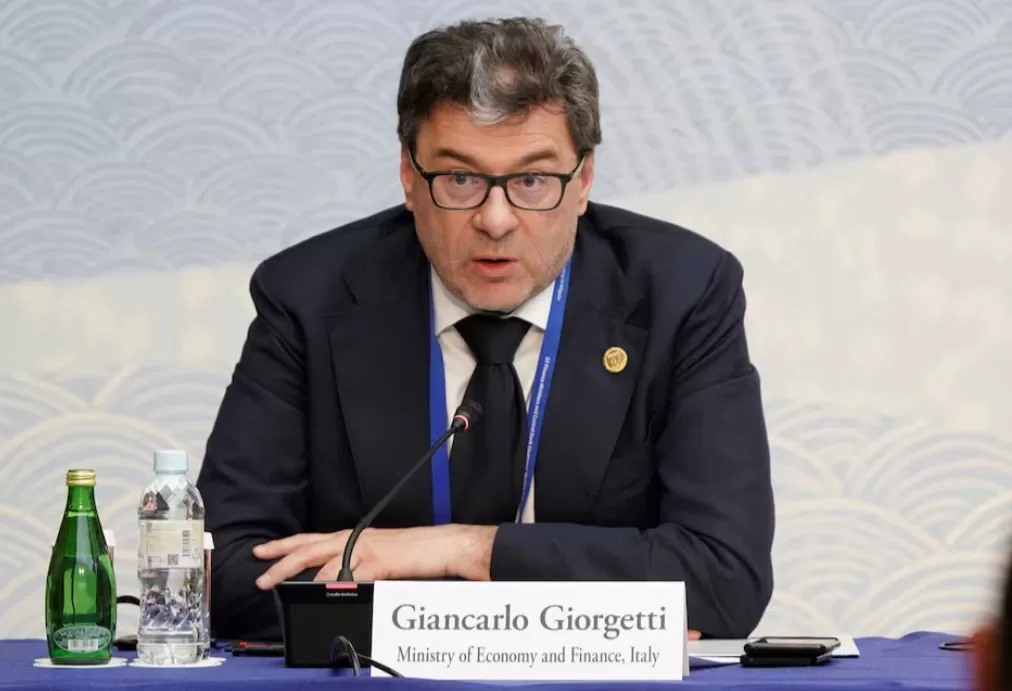G7 finance chiefs are set to meet in Italy this week to discuss two pressing issues: how to utilize frozen Russian assets to support Ukraine’s war effort and how to address China’s growing export strength in key markets. The meeting, which will take place in the northern Italian lakeside town of Stresa on Friday and Saturday, will bring together finance ministers and central bankers from the Group of Seven wealthy democracies.
The G7 negotiators have been discussing for weeks how to best exploit some $300 billion worth of Russian financial assets, which were frozen shortly after Moscow invaded Ukraine in February 2022. The United States is pushing to find a way to bring forward the future income from those assets, either through issuing a bond or, more likely, granting Ukraine a loan that could provide it with as much as $50 billion in the near term.

However, many legal and technical aspects need to be hammered out, meaning a detailed accord is not expected to be reached in Stresa. Instead, informal talks are set to continue aimed at presenting a proposal to G7 heads of government who will meet in Puglia, southern Italy, on June 13-15.
The idea of the G7 issuing a bond for Ukraine appears to have lost ground, with the U.S. now proposing a loan backed by the income stream from the frozen assets. However, several aspects still need to be clarified, including who would administer the loan, how it would be guaranteed, how future profits can be estimated, and what would happen in the event of a peace deal with Russia.
European officials are particularly cautious, with one EU diplomat saying it would take “weeks if not months” for a final decision to be made. Italy’s Economy Minister Giancarlo Giorgetti also highlighted the “quite serious legal implications” of the U.S. proposals, which still need clarifying. Japanese Finance Minister Shunichi Suzuki stressed that any agreement must comply with international law.
Russia has repeatedly warned the West of consequences if its assets are touched and accused Washington of bullying Europe to take more radical steps to thwart it in Ukraine. The prospects for global trade will be another central topic in Stresa after the United States last week unveiled steep tariff hikes on an array of Chinese imports, including electric vehicle batteries, computer chips, and medical products.
Giorgetti said after the U.S. move that a “trade war” was being fought, reflecting geopolitical tensions, and warned of the risk of “fragmentation” to global commerce. The United States is not calling on its partners to take similar measures against China, but an official said it was likely to push for the G7 communique to express common concern for what it calls Beijing’s industrial “overcapacity”.
U.S. Treasury Secretary Janet Yellen said in Frankfurt on Tuesday that the United States and Europe needed to address the threat from Chinese imports in a “strategic and united way” to keep manufacturers viable on both sides of the Atlantic and foster development of their domestic clean energy industries. Other topics to be discussed in Stresa include the impact of artificial intelligence on the global economy and a “stocktaking” on sanctions against Russia.
Taxation will also be on the agenda, with Italy trying to revive a deal on a global minimum tax on multinationals, which was signed by around 140 countries in 2021 but has not been fully implemented due to opposition in the U.S. and elsewhere. A proposal for a global wealth tax on billionaires, which has been promoted by Brazil and France among the broader Group of 20 developed countries, would also be discussed in Stresa but is meeting U.S. resistance.
The G7 finance chiefs’ meeting in Stresa is expected to be a crucial step towards finding common ground on these pressing issues, but significant challenges remain to be overcome before a final agreement can be reached.